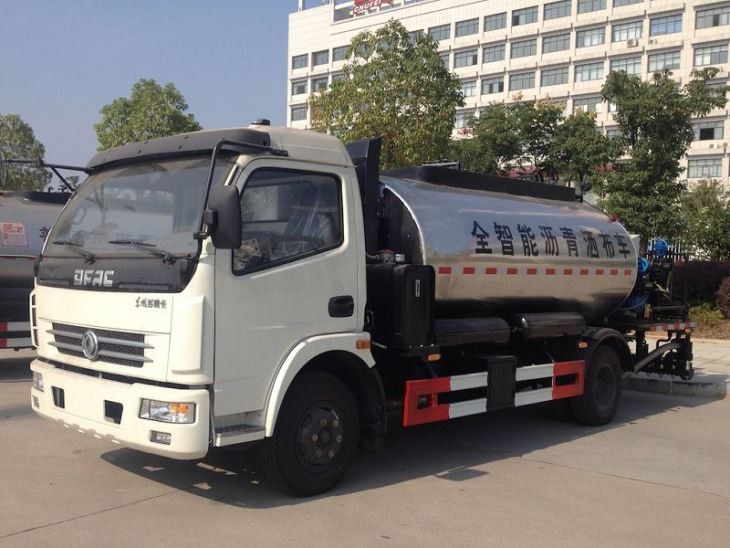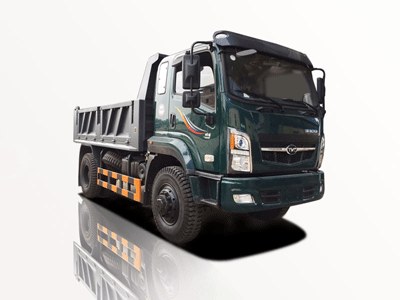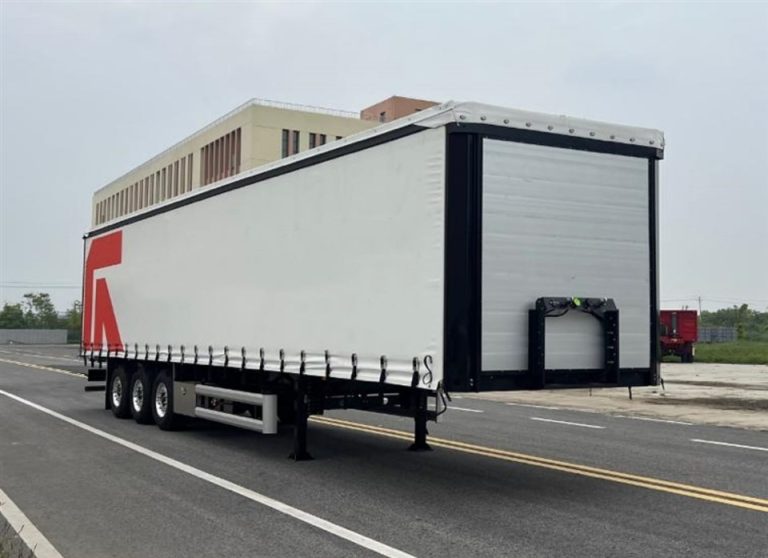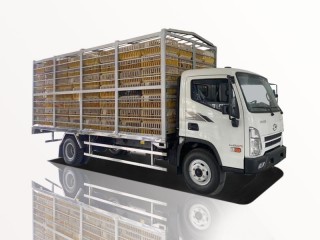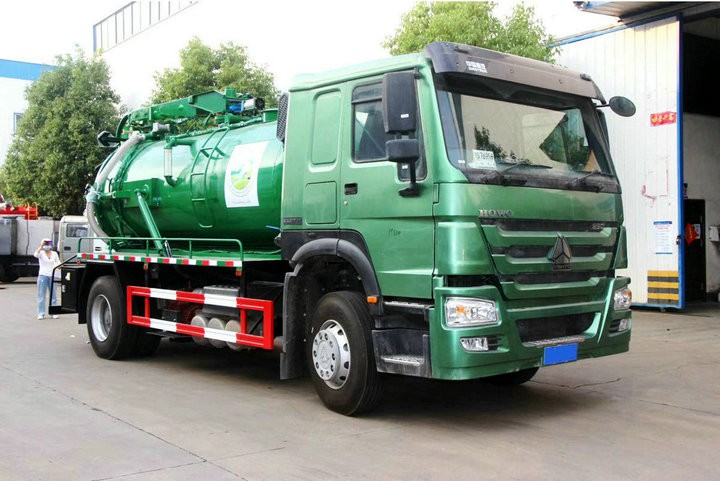As cities grow and waste management demands become more complex, innovative solutions are essential. Among these solutions is the rise of green garbage trucks. These vehicles play a critical role in promoting sustainable waste management practices. In this comprehensive article, we will delve deep into what green garbage trucks are, their types, advantages, implementation strategies, and much more.
What Are Green Garbage Trucks?
Green garbage trucks are waste collection vehicles designed to minimize environmental impact. They utilize alternative fuels, like compressed natural gas (CNG), electricity, or hybrid systems, significantly reducing harmful emissions compared to traditional diesel trucks. By adopting green technology, municipalities aim to create cleaner, healthier urban environments.
The Evolution of Garbage Trucks
The transition from traditional diesel garbage trucks to green alternatives marks an important step in waste management history. Initially, waste collection relied heavily on diesel vehicles, which contributed significantly to air pollution and greenhouse gas emissions. As environmental awareness grew, cities began exploring more sustainable options.
Types of Green Garbage Trucks
- Electric Garbage Trucks: These trucks run entirely on electric power, eliminating tailpipe emissions. Examples include the BYD 8TT and the Mack LR Electric.
- CNG Garbage Trucks: Compressed Natural Gas trucks are powered by CNG, producing fewer pollutants than diesel. Models like the Freightliner M2 CNG lead the way in this category.
- Hybrid Garbage Trucks: These vehicles combine traditional fuels with electric power, offering improved fuel efficiency. The Peterbilt 520 Hybrid is a leading example.
- Biodiesel Trucks: These trucks run on biodiesel, which is derived from renewable resources. They can also operate on a blend of standard diesel and biodiesel.
Advantages of Green Garbage Trucks
Green garbage trucks offer numerous benefits, making them an attractive choice for municipalities worldwide. Below, we explore the key advantages.
1. Environmental Impact
Green garbage trucks significantly reduce harmful emissions, improving air quality and public health. For instance, electric trucks produce zero emissions during operation, while CNG trucks can cut NOx emissions by up to 90% compared to traditional vehicles.
2. Fuel Efficiency
Many green garbage trucks are designed to be more fuel-efficient than their diesel counterparts. This means lower operational costs for municipalities and a smaller carbon footprint. Hybrid models, for example, use electric power during stops, enhancing efficiency during collection routes.
3. Noise Reduction
Electric and hybrid garbage trucks operate much more quietly than traditional diesel trucks. This is particularly beneficial for urban areas where noise pollution is a concern, as it minimizes disruption during early morning collection times.
4. Long-Term Cost Savings
Although the initial investment for green garbage trucks may be higher, the long-term savings on fuel and maintenance can be substantial. For example, electric trucks have fewer moving parts, resulting in lower maintenance costs over time.
5. Improved Public Image
Adopting green garbage trucks enhances a city’s commitment to sustainability, positively impacting its image. A populace that values progressive environmental policies may be more likely to support local government initiatives.
Implementing Green Garbage Trucks: Step-by-Step Guide
Transitioning to a fleet of green garbage trucks requires careful planning and execution. Below are the steps municipalities can take to implement this change effectively.
Step 1: Assess Current Waste Management Practices
| Current Practices | Environmental Impact | Cost Analysis |
|---|---|---|
| Fleet Age | Older fleets have higher emissions. | Higher fuel and maintenance costs. |
| Collection Techniques | Traditional methods may be inefficient. | Variable route efficiency can raise costs. |
Step 2: Explore Green Options
Research available green truck models, evaluating their specifications, costs, and environmental performance. Consider consulting a waste management expert to identify the best choices for your city.
Step 3: Secure Funding
Look into funding options, including government grants, partnerships with private organizations, and local budgets. Present the case for green garbage trucks to decision-makers, emphasizing the long-term savings and environmental benefits.
Step 4: Pilot Program
Start with a pilot program using a few green garbage trucks. Monitor performance, fuel efficiency, maintenance needs, and public feedback. Use this data to evaluate the feasibility of a full fleet transition.
Step 5: Full-Scale Implementation
If the pilot program proves successful, proceed to scale up and replace the existing fleet with green garbage trucks. Develop a training program for operators to enhance their understanding of new technology.
Step 6: Ongoing Assessment
After implementation, consistently monitor performance metrics and gather community feedback. This ensures that the trucks meet waste management goals and continue providing environmental benefits.
Case Studies: Cities Leading the Way
Several cities worldwide have successfully transitioned to green garbage trucks, setting examples for others to follow. Here, we present notable case studies.
Los Angeles, California
Los Angeles has made significant strides in adopting CNG garbage trucks. The city’s Bureau of Sanitation operates a fleet of over 200 CNG trucks, which has cut greenhouse gas emissions significantly while saving on fuel costs.
San Francisco, California
San Francisco boasts one of the most ambitious zero-waste plans globally and has integrated electric garbage trucks into its fleet. The city has reduced its total waste by 80% by focusing on composting and recycling, further enhanced with green collections.
Amsterdam, Netherlands
Amsterdam utilizes fully electric garbage trucks, focusing on reducing noise and emissions while improving urban air quality. The city’s commitment to sustainability has garnered international attention and has paved the way for other European cities.
Challenges in Transitioning to Green Garbage Trucks
Despite the advantages, several challenges can hinder the adoption of green garbage trucks. Below are common hurdles that municipalities may face.
1. Financing and Budget Constraints
Acquiring green garbage trucks can be costly upfront, and some municipalities may struggle to finance the transition, especially in areas with limited funding resources.
2. Infrastructure Needs
Electric and CNG trucks require specialized infrastructure, including charging stations or fueling stations. Cities must invest in these facilities or partner with providers to enable successful implementation.
3. Training for Operators
Operators may need training to learn how to efficiently operate and maintain new green truck technologies. Infrastructure may not be fully equipped to handle the change initially.
4. Public Acceptance
Community members may resist changes to waste management practices. Failure to communicate effectively about the benefits of green garbage trucks can lead to public skepticism.
Future Trends in Green Garbage Truck Technology
The future of green garbage trucks is promising, with continuous advancements anticipated. Here are some trends to watch.
1. Advancements in Electric Vehicle Technology
Improvements in battery technology are expected to lead to longer ranges and faster charging times for electric garbage trucks. Manufacturers are focusing on maximizing efficiency and minimizing downtime.
2. Autonomous Garbage Trucks
As autonomous vehicle technology progresses, cities may soon implement self-driving garbage trucks that enhance efficiency and safety while collecting waste.
3. Integration with Smart City Initiatives
Green garbage trucks are likely to become part of broader smart city plans, utilizing data analytics to optimize routes and schedules, further enhancing sustainability and efficiency.
Tips for Municipalities Considering Green Garbage Trucks
Here are practical tips for municipalities looking to adopt green garbage trucks.
Create a Comprehensive Plan
Establish a clear roadmap outlining objectives, timelines, and expected outcomes. Collaborate with stakeholders and community members for comprehensive support.
Engage with Manufacturers
Work closely with manufacturers to understand the latest technologies available. Test various models to identify the best fit for your city.
Sustain Community Awareness Campaigns
Educate residents on the benefits of green garbage trucks to foster public support. Use social media, community meetings, and information sessions to communicate effectively.
Monitor and Adapt
Consistently evaluate the performance of green garbage trucks and adjust practices based on data and community feedback to ensure continued success.
Frequently Asked Questions (FAQ)
1. How much do green garbage trucks cost?
The cost of green garbage trucks varies widely based on the type, model, and additional features. Generally, electric trucks can be more expensive initially but offer long-term savings through reduced fuel and maintenance costs.
2. Are electric garbage trucks suitable for all cities?
Electric garbage trucks may be more suitable for cities with reliable charging infrastructure and shorter collection routes. Larger cities with more extensive routes may benefit more from hybrid or CNG options.
3. What fuels do green garbage trucks typically use?
Green garbage trucks can run on various fuels, including electricity, compressed natural gas (CNG), biodiesel, and hybrid systems that combine traditional fuels with electric power.
4. How can cities fund the transition to green garbage trucks?
Cities can explore several funding options such as government grants, partnerships with fuel suppliers, and leasing arrangements with manufacturers to spread costs over time.
5. What are the maintenance needs for green garbage trucks?
Maintenance varies based on the type of truck. Electric trucks generally require less maintenance due to fewer moving parts, while CNG and hybrid trucks require regular checks on fuel systems and batteries.
6. Do green garbage trucks help reduce noise pollution?
Yes, electric and some hybrid garbage trucks operate much quieter than traditional diesel trucks, leading to reduced noise pollution, especially in urban areas.
